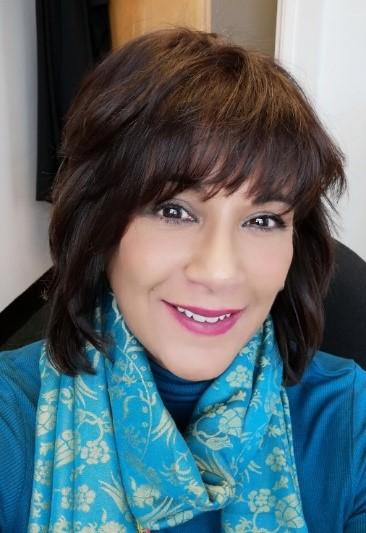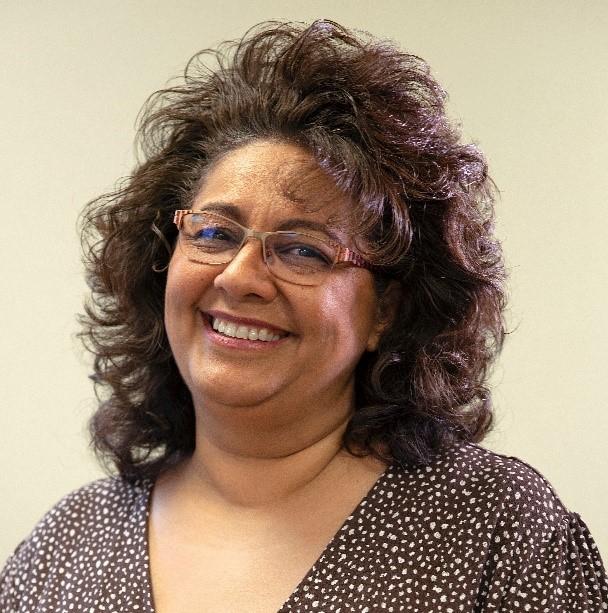
The Race Equality Charter Governance Committee provides assurance, expert advice and guidance to the Advance HE Board on matters relating to the development of the Race Equality Charter.
Find out more about the Race Equality Charter Governance Committee members below:
Pradeep Passi (co-Chair)
Director of Equality, Diversity and Inclusion
University of Central Lancashire
Pradeep is Director of Equality, Diversity and Inclusion at the University of Central Lancashire and is responsible for leading its EDI work. He chairs the university’s EDI Taskforce and is also Director of the Global Race Centre for Equality, focussing on trans-disciplinary research in relation to racial inequalities. Pradeep has also had extensive experience both as a panel member and chairing race equality charter panels. His research and professional interests lie in organisational approaches to creating change through inclusive approaches, drawing on his extensive experience in working across the public sector to enhance approaches in the advancement of inclusion. Pradeep also has research interests relating to awarding gaps and is a founding member of the North West Awards Gap Group.

Professor David Richardson (co-Chair)
Vice-Chancellor and President
University of East Anglia
David is Vice-Chancellor of the University of East Anglia and Chaired the Universities UK advisory group on tackling racial harassment that produced action-based guidance for the sector that was published in November 2020.
Institutional racism in Universities is not just the problem of those suffering from the injustices that result. It is a problem of the whole university community that must therefore tackle this together led by the Vice-Chancellor. So, at UEA David has set up a Vice-Chancellor’s Tackling Racism Taskforce so providing personal leadership in all of these areas. All of the senior management team and governing body have taken allyship training so they too can lead effectively being actively anti-racist. As leaders, we are not doing our jobs effectively if we do nothing while a significant proportion of our staff and student bodies are suffering from harassment, experiencing poorer outcomes, and ultimately cannot thrive. It is also important to recognise that efforts to address racial harassment in isolation are not enough. There are numerous other ways in which we must address racism and racial inequalities and take concrete activities to address issues such as ethnicity pay gaps, increasing representation, tackling degree awarding gaps and embracing decolonisation all of which are encompassed by the Race Equality Charter.
David's challenge to the Sector is to see fast progress in turning action into words, taking an active anti-racist approach to tackling forms of racism, including racial harassment and discrimination in our institutions. By joining the Advance HE Race Equality Charter Governance Committee he would like to play his part in helping to deliver this culture change.
_0.jpg?itok=yjPdRufm)
Zainab Hussain
Senior Lecturer
University of Liverpool
Zainab is a Senior Lecturer at the University of Liverpool, School of Health Sciences, EDI lead for the Institute of Population Health and also Chair of the BAME Staff network. She has been a lecturer in Health Sciences for over 20 years and initially became involved in advancing diversity and equality in HE due to recognising the poorer health outcomes for Black and Asian communities. Which she believes is exacerbated by a lack of diversity in some healthcare professions and also in the curricula. Much of her work has been to increase participation and retention of Black and Asian students and to provide a curriculum that is inclusive of our communities. This encouraged Zainab to become involved in the REC where she has acted as a panellist and Chair. She really appreciates the opportunity of being a member of the REC Governance committee and to be working alongside colleagues to identify and implement best practices to support and encourage HEI’s to recognise and address racial inequalities.

Patrick Johnson
Director of Equality, Diversity & Inclusion
The University of Law
Patrick has worked in higher education for over 20 years, with 13 years spent as Head of EDI at the University of Manchester. The REC is something he has wanted to be involved with and support since its inception. Manchester was part of the initial pilot group for the REC and he has supported two successful submissions.
Patrick recently started as Director of EDI at the University of Law, a specialist provider of legal, business and professional education and this gave him helpful insight into the challenges for smaller, specialist institutions.
He's also currently a Disabled Students’ Commissioner and Deputy Chair of the Research Excellence Framework (REF) 2021 Equality and Diversity Advisory Panel (EDAP).
Patrick is delighted to be a member of the Race Equality Charter (REC) Governance Committee. He believes the committee gives him an opportunity to engage with work that has an impact and supports the higher education sector to make a real difference to the lives of staff and students.

Nazira Karodia
Vice Principal for Learning and Teaching
Edinburgh Napier University
Nazira is a Chemist and a Pro Vice Chancellor. She grew up and was a student under Apartheid in South Africa. That baptism in racial inequality drives much of her focus on fostering opportunity within and through Higher Education.
Being racially different or a member of an ethnic minority is an educational, opportunity, work and social barrier for many in the UK. Her hope for a just society impels her to seek ways to challenge and address this inequality; her life experiences, education and leadership position at a university give me that opportunity. She believes we cannot allow racialized inequality to blight the prospects of our students and staff and for this we need intellectual, cultural, emotional and structural change within Higher Education. She believes this will only occur if we engage with the issues of race and inequality at a deeper and concerned level which entails searching scrutiny and programmes of action, redress and realignment.
"The experience, success and career prospects of both ethnic minority students and staff in Higher Education compels us to acknowledge that the field is uneven and tilted against them; against this there cannot be posturing, but real and inspired effort. We, in Higher Education, can work towards that."

Joanna MacDonnell PFHEA
Director of Education and Students
University of Brighton
Jo is the Director of Education and Students at the University of Brighton where she has strategic leadership for student achievement and engagement, this includes focused work on Race Equity and reducing differential outcomes and experiences for Black, Asian and Minority Ethnic students.
Jo was an assessor and the Widening Participation liaison panellist in the Office for Students TEF subject level pilots (Arts and Humanities 2017 - 2019) and is currently a member of the TASO (Transforming Access and Student Outcomes What Works Centre) Gaps in Student Experience working group, she is a Principal Fellow of the HEA (PFHEA) and a Fellow of SEDA (Staff and Education Development Association).
Jo is delighted to be joining the Race Equality Charter Governance Committee and contributing to the work to support the development of the Charter, and seeing in the longer term outcomes and experiences for students, through the sectors engagement with the charter, improve.
.jpg?itok=JspEHB_C)
Aranee Manoharan
Head of Careers & Employability
King’s College London
Aranee is a committed advocate for equity, inclusion, and social mobility. With experience across teaching, student success, educational development, and HR, she specialises in inclusive curriculum design to improve graduate outcomes for all students. Having secured SFHEA for this work, she has also been appointed to the AGCAS and ISE EDI advisory boards and advises the Royal Society of Biology HUBs network on the ethnicity awarding gap.
Having contributed to the Race Equality Charter within her previous institution for 5 years, Aranee believes in the REC’s potential to be a vehicle for genuine structural and cultural change within universities. Through the REC Governance Committee, she is keen to support Advance HE to transform the charter mark into a more practical framework that 1) achieves greater impact in addressing race equity within member institutions and 2) enables a greater number of universities to actively engage with race equity, in the UK and beyond.

Khadija Mohammed
Senior Lecturer in Education
University of the West of Scotland
Khadija is the Programme Leader and a Senior Fellow of the Higher Education Academy in the School of Education and Social Sciences at UWS. Her research centres on the lived experiences of Black and Minority Ethnic educators across the sector with a focus on acknowledging, nurturing and celebrating their diverse cultural, linguistic and religious identities and capacity building. Khadija is the Chair of SAMEE, a community-led organisation providing support to BAME education professionals across Scotland. She received the Scottish Trade Union Congress Equality Award in 2019 and was the first BAME educator to be elected as the Vice-Convenor of the General Teaching Council for Scotland (GTCS). She is also Chair of the Advance HE/Scottish Funding Council project ‘Tackling Racial Harassment in Universities and Colleges’ which encouraged Scottish universities and colleges to endorse a declaration committing to acknowledging racial discrimination and advancing racial equity in their institutions. This landmark commitment demonstrates the shared agency and leadership that she hopes to achieve along with her colleagues as a REC committee member. Khadija strives to centre the voices of BAME staff and students in both policy and practice within institutions across the UK.

Kaushika Patel
Deputy Pro Vice-Chancellor for Equality, Diversity and Inclusion
and Deputy Dean for the Faculty of Health and Life Sciences
De Montfort University
Kaushika’s Deputy PVC role of leading Equality, Diversity and Inclusion includes being Director of the Decolonising DMU project, Chair of the University Race Equality Charter Committee, Chair of the University EDI committee, as well as the chair for her own Faculty EDI committee. Her role also requires having oversight and providing support to the University Staff Networks, the Athena Swan SATs along with the range of charter work the University engages with.
Kaushika’s passion in driving forward anti-racist practice comes from her 17 years working as a social worker with Black, Asian and minority ethnic children and young people and her 15 years working in Higher Education where race inequalities continue in a variety of forms. Kaushika has two children both at University and hearing their experiences of racism, othering and exclusion continues to drive her passion to work, from the inside, to build an anti-racist Higher Education sector and this is why being a member of the Race Equality Charter Governance Committee is particularly important to her.
Kaushika continues to formally mentor and coach Black, Asian and Minority Ethnic staff and students at DMU as she is keen to support and promote their voices within their university - and the wider Higher Education sector.

Narender Ramnani
Professor of Neuroscience
Royal Holloway University of London
Narender feels honoured to have been invited to take up a position on the Governance Committee of the Race Equality Charter. He hopes to contribute my own observations and experiences of research, teaching and mentoring in the Higher Education sector. He is concerned, for example, about issues affecting the progress of Black and Global Majority people through education and career development pipelines, from student awarding gaps in UK Universities to the lack of representation in the professoriate. He also hopes to bring my governance experience in other organisations such as the British Neuroscience Association and the Parliamentary and Scientific Committee. Narender also feels that his experience of leading and participating in Charter-related work at Royal Holloway University of London will be useful for understanding the REC from an institutional viewpoint. He is confident that REC processes can develop understanding and promote the removal of barriers. He has seen at first hand the ways in which the current form of the REC drives changes in institutions, but realises that it also has the potential to develop in new and exciting directions. He is really looking forward to playing a role in it’s evolution.

Jenny K Rodriguez
Senior Lecturer in Employment Studies
The University of Manchester
Jenny is an academic with a longstanding personal and academic interest and commitment to understanding experiences of life and work at the point of intersection of social categories of difference, in particular gender and racio-ethnicity. Her involvement in the REC Governance Committee is driven by her interest in being part of dialogue that is both generative and action-driven, and that helps to realise the potential of the Race Equality Charter to set the roadmap for action to tackle racial inequality and racism in higher education in the UK. At a time when there is much public discussion about racial inequality and calls for HE institutions to take more decisive action to tackle racism and racial inequality, the leading role of the Governance Committee is essential to shaping an agenda of transformational change that draws on multi-level engagement. She is excited about the opportunity to bring her own and engage with others’ diverse backgrounds, identities, knowledge(s) and experiences to support the realisation of the aims of the Race Equality Charter.
Eli Todorova
Equality, Diversity, and Inclusion Coordinator
The University of Nottingham
Eli believes that higher education plays an essential role in wider systems of structural racism, and while it can empower individuals, it can equally reinforce existing biases and inequalities. That is why she is keen to see ambition and commitment to race equality across higher education and to ensure that REC is a supportive, but challenging process for each institution. Having supported University of Nottingham's recent successful Bronze REC submission, Eli has been keen get even more involved with the process, and being a part of the governance committee feels like the best way to improve the REC for the entire sector to her.
Before joining University of Nottingham Eli worked on tackling hate crime in Nottinghamshire where she was able to empower and amplify the voices of those affected by racism and prejudice. Eli wanted to bring her experience in delivering equality, diversity, and inclusion projects and her passion for race equality both within and outside the sector into the work of the REC governance committee and she is looking forward to working with the rest of the group.
